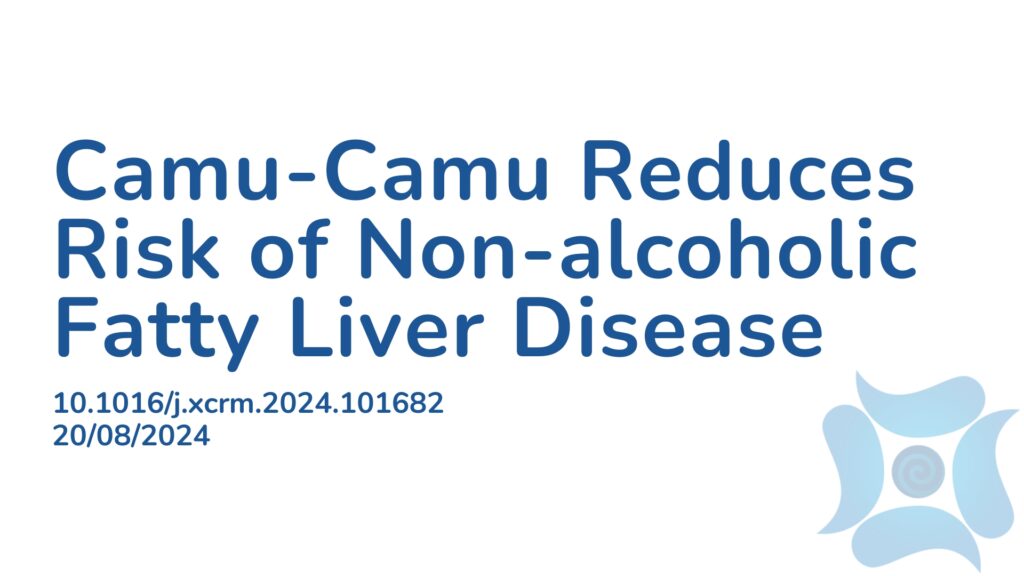Summary:
Non-alcoholic fatty liver disease (NAFLD) is characterized by excessive fat accumulation in the liver and is the most common liver condition. NAFLD encompasses a spectrum of liver disorders, including steatosis (non-alcoholic fatty liver), non-alcoholic steatohepatitis (NASH), and fibrosis. NAFLD usually has no symptoms until it progresses and is frequently associated with obesity and type 2 diabetes mellitus in over 90% of patients. Lifestyle modifications and weight loss are the primary recommended interventions for preventing and managing NAFLD. Natural bioactive compounds, particularly those found in fruits and vegetables, have emerged as promising agents for reversing NAFLD. Camu-camu (CC), an Amazonian fruit rich in polyphenols, is noted in the literature for its antioxidant and anti-inflammatory properties. This 12-week randomized, double-blind, placebo-controlled crossover trial aims to assess the effects of 1.5 g/day CC supplementation on hepatic steatosis and gut microbiota. The researchers hypothesized that daily CC treatment for 12 weeks would reduce liver fat and body fat while improving glucose metabolism compared to a placebo. The study involved 30 adults who are overweight and have elevated levels of triglycerides. Participants received either 1.5 g of CC capsules or a placebo daily for 12 weeks. The results showed that CC treatment led to almost an 8% reduction in liver fat, whereas liver fat increased by 8.42% during the placebo phase. Additionally, CC treatment improved gut microbiota composition. These results suggest that a polyphenol-rich prebiotic like CC may help decrease liver fat in overweight adults, potentially lowering the risk of developing NAFLD.
Abstract:
Non-alcoholic fatty liver disease (NAFLD) affects 25% of the adult population with no effective drug treatments available. Previous animal studies reported that a polyphenol-rich extract from the Amazonian berry camu-camu (CC) prevented hepatic steatosis in a mouse model of diet-induced obesity. This study aims to determine the impact of CC on hepatic steatosis (primary outcome) and evaluate changes in metabolic and gut microbiota profiles (exploratory outcomes). A randomized, double-blind, placebo-controlled crossover trial is conducted on 30 adults with overweight and hypertriglyceridemia, who consume 1.5 g of CC capsules or placebo daily for 12 weeks. CC treatment decreases liver fat by 7.43%, while it increases by 8.42% during the placebo intervention, showing a significant difference of 15.85%. CC decreases plasma aspartate and alanine aminotransferases levels and promotes changes in gut microbiota composition. These findings support that polyphenol-rich prebiotic may reduce liver fat in adults with overweight, reducing the risk of developing NAFLD.
Article Publication Date: 20/08/2024
DOI: 10.1016/j.xcrm.2024.101682



